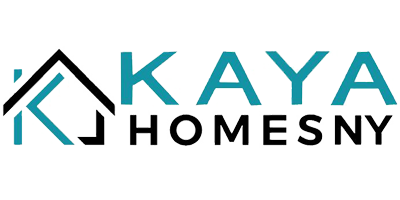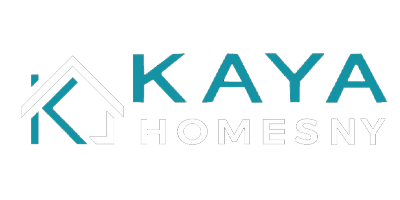The process of investing in commercial real estate acts as the key to break open remarkable financial possibilities. So, investment in commercial real estate, especially in a thriving hub like Long Island, is nothing short of life-changing. Maybe the desirability to buy or sell property in Long Island is not restricted to residential ventures alone and actually extends to the commercial estate that opened ways to create wealth and unparalleled business opportunities. Its prime location, diverse economy, and vicinity to the vibrant energy of New York City make Long Island a goldmine for the savvy investor. In this guide, we’ll explain how to purchase commercial property in Long Island without any hassle!
Understanding Your Investment Landscape
Investment goals will help you decide on everything throughout the entire buying process. They will guide everything from property selection to financing. Some investors target those properties that give them high cash flow immediately, while others target those properties that will appreciate over time. With clearly defined and quantifiable goals, you are prepared with a strategic plan that will see you through the intricacies of commercial real estate investing.
Navigating the Long Island Commercial Property Market
Long Island possesses a unique and challenging commercial market due to proximity to New York City, its robust infrastructure, and diversification of economic opportunity. With the various properties available, remember that value and potential come with many different facets.
Location is a very critical factor in commercial property investments. On Long Island, this would mean assessment in terms of accessibility, visibility, infrastructure, and neighborhood dynamics. Properties sited near major transportation routes are also capable of commanding higher values, with easier access assured for customers and employees alike.
Quite importantly in the investment of commercial property are zoning regulations. Each municipality on Long Island has distinct zoning laws that determine the use of property. Understanding these regulations is very important in order to ensure your investment aligns with your purpose. Reach out to local municipal offices and qualified real estate professionals who can give nuances to complexities about zoning.
Financial Considerations and Preparation
Financing a commercial property requires an integrated and highly strategic approach. In comparison with residential real estate, financial evaluation processes involving commercial property are usually more complex. Traditional banks, credit unions, and other specialty commercial lenders provide a variety of methods for financing, each with its own terms and conditions.
Prepare a solid financial profile: This will include good credit scores, detailed business plans, and the assembly of overall financial documentation. Lenders will be looking at your financial health, the performance of your business, and the prospective income-generating ability of the property you are going to buy.
Other alternative methods of financing can be flexible. Indeed, seller financing, partnership investments, and commercial real estate investment trusts are novel ways to different paths of property acquisition. Each option has respective advantages and potential challenges, which again make it indispensable to consult with a financial advisor operating in commercial real estate.
Due Diligence: The Cornerstone of Successful Investment
Proper due diligence literally separates a profitable investment from a potentially high-priced financial pitfall. This would involve comprehensive property inspection, financial review, and legal verification. Professional building inspectors, commercial real estate appraisers, and lawyers become your strategic partners in this important stage.
Other due diligence non-negotiable investigations include structural, environmental, and compliance checks that uncover hidden costs, renovations required, and legal encumbrances that may affect the value or usability of the property.
Among the occupied properties, the current agreements of the tenants are elemental to be scrutinised, the terms of lease as well as the streams of rental income currently acquired should be known. These will be major factors in understanding the immediate and long-term financial performance of the property.
Negotiation and Closing: Sealing the Deal
The negotiation stage is a delicate mix of market knowledge, financial acumen, and strategic thinking. Quite conceivably, the most valuable hand you can deal yourself with during any Long Island commercial transaction is that of a commercial real estate agent versed in the unique dynamics of the Long Island marketplace. They will help you to prepare competitive offers, navigate through complex negotiations, and recognize leverage points.
Including appropriate contingencies in your offer protects your interests. Inspection contingencies, financing contingencies, and other protective clauses provide safeguards against unforeseen complications. Your legal advisor will play an important role in the drafting and reviewing of these critical contractual elements.
Closing involves completion of financing and execution of legal documents, as well as other administrative matters. To properly financially plan for a sale/purchase of property, one needs to know and expect closing costs, which are elevated, to say the least, from that of residential real property.
Leveraging Technology in Commercial Real Estate Investments
The digital age has revolutionized commercial real estate investment. Never before do investors have access to information and analytics, along with market insight in ways unimaginable a decade ago. Technology has changed the way investors research and evaluate commercial property in Long Island and manage such properties.
Advanced analytics platforms provide comprehensive market insights today, allowing investors to delve deeper into property valuation, trends in rentals, and economic indicators. GIS tools-geographic information systems-further allow detailed mapping of commercial zones to help the investor identify emerging markets and hotspots for their investments.
Virtual property tours and 3D imaging have made remote property exploration easier and more accessible than ever. These digital tools enable investors to make a preliminary valuation of properties without necessarily physically visiting them, saving time and reducing logistical challenges. AI-powered platforms can then build predictive models for the appreciation in property values, market trends, and investment returns.
Meanwhile, blockchain technology has emerged as one of the game-changers in commercial real estate transactions. Smart contracts and digital property registries are easing ownership transfers, reducing bureaucratic hurdles, and bringing more transparency in property dealings, thereby turning commercial property investments more efficient and data-driven.
Sustainable and Future-Oriented Commercial Property Investments
In modern times, sustainability has emerged as one of the key points of concern in commercial real estate investment. With Long Island fostering a very sound environmental policy and increased focus on green technologies, sustainable property investments within the area are found especially appealing.
Energy-efficient buildings with advanced features concerning sustainability have increased in value within the commercial real estate market. Properties that feature solar panels, advanced insulation, smart systems of energy management, and green certifications command premium pricing while appealing to environmentally conscious tenants.
Remote work and, subsequently, hybrid business models are changing commercial property requirements. Besides this, investors should be looking to properties that can change with the dynamics of the workplace: flexible office spaces, properties with heavy technological infrastructure, and buildings that can be easily transformed according to evolving business needs.
Other than that, there is a climate resilience for Long Island commercial properties. Being near coastal areas, investors should therefore look into properties that can bear with the potential environmental challenges. This may involve assessing everything from flood mitigation infrastructure and building elevation to structural resilience against extreme weather.
Conclusion
Investing in commercial property in Long Island is a challenging journey that requires one to act strategically. The key to winning in this fast-paced market lies in melding extensive research with preparedness for finance, technology insight, and foresightedness.
Consider commercial property investing not just as a financial transaction, but as long-term dedication. Each property presents an opportunity to create value and contributes to the development of the local economy while forming a mixed portfolio. Your strategy needs to be flexible, considering the fluidity in the commercial real estate dynamics.
Frequently Asked Questions
Q1: How much capital must I invest in commercial property?
Commercial property investments have very high initial capital. Depending on the type of property and the location, you might be looking at putting 20-35% down, depending upon the purchase price. You will also need to budget extra cash for renovations, closing costs, and some start-up expenses.
Q2: What are the tax implications of commercial property ownership?
There are numerous tax benefits associated with owning commercial property, such as the potential for deductibility of mortgage interest, depreciation, operating expenses, and property improvements. Accountability in your tax approach would be of importance, and hence it would be highly advisable that you seek the contribution of a professional tax consultant who deals in commercial real estate.
Q3: How to work out the right value for the property?
Property valuation relies on an analysis of comparable sales, possible income generations, location attributes, and current market trends. Professional appraisers and/or commercial real estate agents can provide in-depth, detailed market analysis to help you make the best decisions regarding valuation.
Q4: What are some of the investment risks associated with commercial property?
Among the major risks one may face are market fluctuations, periods of vacancy, surprise maintenance costs, zoning law changes, and overall economic changes. Meanwhile, mitigants for such risks would include research, diversification, holding reserves, and keeping current on local market conditions.










 by Mottek Group
by Mottek Group